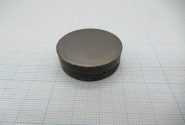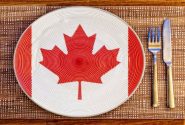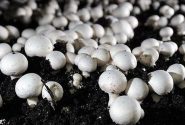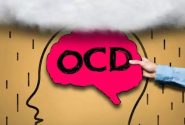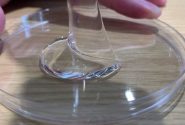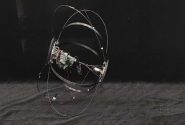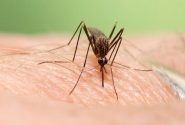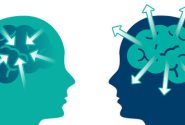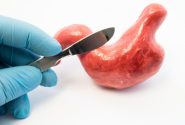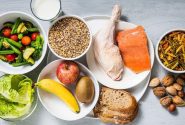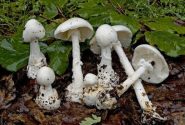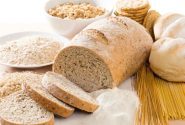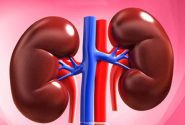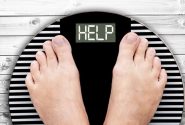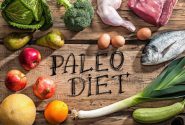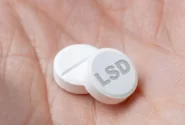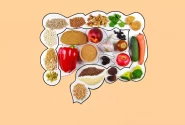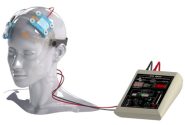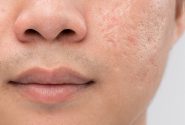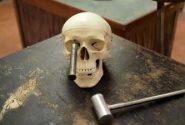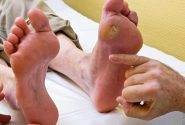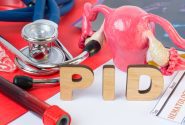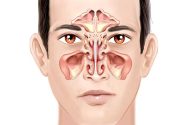به گزارش پایگاه خبری تحلیلی تسریر، به نقل از مدیکال نیوز تودی، بیماری هایی مانند زوال عقل و بیماری آلزایمر می توانند باعث بدتر شدن افت طبیعی خفیف شناختی مغز پیر شوند.
- در حال حاضر هیچ درمانی برای زوال عقل یا بیماری آلزایمر وجود ندارد.
- محققان کالج کینگ لندن دریافتند که مصرف مکمل فیبر غذایی ممکن است به بهبود عملکرد مغز در افراد مسن کمک کند.
با افزایش سن، تمام قسمت های بدن – از جمله مغز – شروع به کند شدن می کنند. طبیعی است که یک فرد در انجام چند کار، یافتن کلمات خاص یا به خاطر سپردن نام ها در یک مغز سالم و سالخورده مشکل داشته باشد.
در برخی موارد، بیماری هایی مانند زوال عقل و بیماری آلزایمر می توانند باعث بدتر شدن زوال شناختی خفیف مغز شوند. این می تواند منجر به مشکلات جدی تری از جمله از دست دادن حافظه، ناتوانی در برنامه ریزی یا حل مشکلات، مشکلات صحبت کردن یا نوشتن، تغییرات خلق و خو، اضطراب، مشکلات خواب و سردرگمی با مکان، تاریخ و زمان شود.
در حالی که در حال حاضر هیچ درمانی برای زوال عقل یا بیماری آلزایمر وجود ندارد، انتخاب سبک زندگی سالم و برخی داروها ممکن است به کند کردن پیشرفت آن کمک کند.
اکنون، محققان کالج کینگ لندن دریافته اند که مصرف مکمل فیبر غذایی ممکن است به بهبود عملکرد مغز در افراد مسن کمک کند.
دانشمندان همچنین دریافتند که مکمل های فیبر بر قدرت عضلانی شرکت کنندگان تأثیر نمی گذارد.
این مطالعه اخیراً در مجله Nature CommunicationsTrusted Source منتشر شده است.
جمعیت جهانی که به طور فزاینده ای مسن تر می شود
بر اساس منبع معتبر سازمان بهداشت جهانی، جمعیت جهان با سرعت بیشتری نسبت به گذشته در حال پیر شدن است و مردم تا سن بسیار بالاتری زندگی می کنند. تعداد افراد ۶۰ ساله و بالاتر در جهان در سال ۲۰۲۲ حدود ۱.۴ میلیارد نفر بود و پیش بینی می شود تا سال ۲۰۵۰ به ۲.۱ میلیارد برسد.
دکتر کلر استیو، استاد سالمندی و سلامت و رئیس بخش تحقیقات اپیدمیولوژی ژنتیک در کینگز کالج لندن و نویسنده ارشد این مطالعه به Medical News Today گفت: «با این افزایش پیری در سراسر جهان، مهم است که راههای جدیدی برای مبارزه با شرایط مرتبط با افزایش سن مانند زوال شناختی داشته باشیم.»
دکتر استیو ادامه داد: «با این افزایش تعداد بیماریهای مرتبط با سن، که تأثیر عمدهای بر توانایی افراد مسن برای ادامه زندگی مستقل دارد، میآید. ما فاقد درمان های موثر برای بسیاری از شرایط مرتبط با سن هستیم، بنابراین بسیار مهم است که انرژی خود را در این زمینه متمرکز کنیم. ما باید در مورد این موضوعات بیشتر تحقیق کنیم تا دانش خود را در مورد راههای پیشگیری، کاهش و در واقع معکوس کردن کاهشهای مرتبط با سن، در هر کجا که ممکن باشد، گسترش دهیم.»
دو مکمل فیبر پروبیوتیک
برای این مطالعه، دکتر استیو و تیمش روی دو مکمل پروبیوتیک متمرکز شدند – فیبر رژیمی اینولین و کربوهیدراتهای گیاهی فروکتولیگوساکارید (FOS).
تحقیقات در سالهای اخیر نشان داده است که باکتریهای موجود در روده ما، که به نام میکروبیوم روده شناخته میشود، با سلامت و تندرستی ما مرتبط است. مطالعات ارتباط بین این باکتری ها و مغز را که به عنوان محور روده-مغز شناخته می شود، نشان داده است. ارتباط با سایر اندام ها از جمله با سلامت عضلات نیز نشان داده شده است.
دکتر استیو توضیح داد: نما تصمیم گرفتیم آزمایش کنیم که آیا بهبود سلامت باکتری های روده با استفاده از یک پروبیوتیک می تواند عملکرد مغز و ماهیچه ها را بهبود بخشد یا خیر.»
ما می دانیم که اینولین و FOS مکمل های پری بیوتیکی ایمن، ارزان قیمت و در دسترس تجاری هستند که با باکتری های سالم روده مرتبط هستند. ما همچنین تحت تأثیر کارآزمایی دیگری قرار گرفتیم که به بررسی اینولین و FOS در یک جمعیت خانه سالمندان پرداخت. آنها در افرادی که مکمل اینولین و FOS داشتند، بهبودهایی را در قدرت گرفتن دست، سطح خستگی، و معیارهای کلی ضعف نشان دادند.
مطالعات قبلی نشان دادهاند که اینولین میکروبیوم روده را تغییر میدهد، به کاهش التهاب عصبی کمک میکند و به بهبود آسیبهای مغزی آسیبدیده کمک میکند.
تحقیقات مربوط به FOS گزارش داده است که این مکمل ممکن است با کاهش بتا آمیلوئید در مغز به تضعیف آن در توسعه بیماری آلزایمر کمک کند و به کاهش التهاب عصبی و بهبود حافظه کمک کند.
فیبر عملکرد مغز را بهبود می بخشد
محققان ۳۶ جفت از دوقلوهای بالای ۶۰ سال را برای این مطالعه انتخاب کردند. به یک دوقلو در هر جفت به مدت ۱۲ هفته هر روز یک مکمل فیبر غذایی داده شد، در حالی که دوقلو دیگر دارونما دریافت کردند.
دانشمندان شرکت کنندگان در مطالعه را از طریق ویدئو، پرسشنامه های آنلاین و تست های شناختی زیر نظر گرفتند. علاوه بر این، از شرکت کنندگان خواسته شد تا در تمرینات مقاومتی شرکت کنند و همچنین مکمل پروتئینی با هدف بهبود عملکرد عضلانی مصرف کنند.
این مطالعه ای بود که در آن نه تیم تجزیه و تحلیل و نه شرکتکنندگان مطالعه نمیدانستند که تا پایان مطالعه چه چیزی دریافت کردهاند.
در نتیجه این مطالعه، محققان دریافتند که گروهی که مکمل فیبر دریافت میکردند، عملکرد بهتری در تستهای ارزیابی عملکرد مغز، از جمله تست Paired Associates Learning Source Trusted – یک نشانگر اولیه برای بیماری آلزایمر – و همچنین تستهای زمان واکنش و سرعت پردازش بهبود بخشیدند.
دکتر استیو گفت: «ما بسیار متعجب شدیم که متوجه شدیم افرادی که مکمل پروبیوتیک دریافت کردهاند در مقایسه با دارونما در آزمایشهای حافظه و تفکر در یک بازه زمانی ۱۲ هفته بهبود یافتهاند. ما می دانیم که ارتباطی بین باکتری روده و مغز وجود دارد، بنابراین این مطالعه شواهد بیشتری از این ارتباط ارائه می دهد و برای مطالعات آینده با هدف بهبود حافظه و جلوگیری از کاهش با افزایش سن بسیار امیدوار کننده است.»
او افزود: «ما نشان دادهایم که یک مکمل فیبر ساده، ارزان و در دسترس، که منجر به افزایش تعداد باکتریهای سالم در روده میشود، در واقع میتواند بر عملکرد مغز و نتایج آزمایش حافظه تأثیر بگذارد.» “دیدن این نتیجه مثبت تنها در سه ماه، نوید بزرگی برای تقویت حافظه و سلامت مغز در جمعیت سالخورده ما دارد.”
دانشمندان گزارش کردند که تفاوت معنی داری در قدرت عضلانی بین گروه مکمل و دارونما وجود ندارد.
تحقیقات بیشتری مورد نیاز است
MNT همچنین با دکتر کلیفورد سگیل، متخصص مغز و اعصاب در مرکز بهداشت پراویدنس سنت جان در سانتا مونیکا، کالیفرنیا، در مورد این مطالعه صحبت کرد.
دکتر سگیل گفت که او با نویسندگان مطالعه موافق است که گزارش بهبود در این شرایط و اینکه مطالعه در این مرحله معنیدار باشد دشوار است.
او توضیح داد: «سخت است بگوییم که تغییر رژیم غذایی باعث می شود پیر نشوید، عضلات بهتری داشته باشید و شناخت بهتری داشته باشید.»
اگرچه، رژیم غذایی نامناسب با دیابت، فشار خون بالا و عوامل خطر قلبی عروقی و قلبی مرتبط است. بنابراین، اگرچه نمیتوانم بگویم افزودن فیبر ممکن است کمک کند یا نه، چیزهایی وجود دارد که نباید بخورید – گفتن اینکه چه چیزی باید بخورید سختتر است.
دکتر سگیل گفت که مایل است آزمایش های خون را همراه با این تحقیق ببیند تا ببیند آیا قند و آلبومین شرکت کنندگان بالا می رود یا پایین.
او افزود: «من دوست دارم این نوع آزمایشها را با برخی آزمایشهای خون تکرار کنم تا اطلاعات معنیداری را به پزشکی مانند خودم ارائه کنم تا ببینم آیا این نوع چیزها چیزها را در خون تغییر میدهند یا خیر». “و سپس اگر چیزهایی را در خون تغییر دهد، گام بعدی این است که ببینیم آیا آنها چیزهایی را در مغز تغییر می دهند.”
تاثیر مثبت فیبر بر مغز
MNT همچنین با دو متخصص تغذیه ثبت شده برای واکنش آنها به یافته های این مطالعه صحبت کرد.
مونیک ریچارد، متخصص تغذیه و صاحب Nutrition-In-Sight به MNT توضیح میدهد: «با دانستن ارتباط بین محور روده-مغز، از اینکه این مطالعه تأثیر مثبتی بر نشانگرهای سلامت شناختی از طریق مکملهای پرویوتیک مشاهده کرد، تعجب نکردم.»
او گفت: “محصولات جانبی متابولیک میکروب ها در حین تجزیه، تخمیر و مصرف مواد غذایی مانند فیبر – اینولین و FOS مورد استفاده در این مطالعه – ترکیبات دیگری را ایجاد می کنند که می توانند ضد التهاب، محافظت کننده و برای سایر سیستم های بدن مفید باشند.”
یکی از عوارض جانبی کاهش التهاب، کاهش احتمالی مه مغزی، فراموشی، گیجی یا بی حالی است. میکروبیوتای روده همچنین میتواند به تشکیل عوامل کمکی – کمککنندههای خاص مواد مغذی – کمک کند که مسیرهای انتقال انتقالدهندههای عصبی را بهینه میکنند و به زنجیره رویدادهایی که به عملکرد بخشهایی از مغز ما در همه استوانهها کمک میکنند، کمک میکند.
مولی راپوزو، متخصص تغذیه و مدرس ارشد تغذیه و سلامت در مؤسسه علوم اعصاب پاسیفیک در سانتا مونیکا CA، به MNT گفت: «من اغلب بیمارانم را تشویق میکنم که مصرف فیبر خود را به دلایل زیادی مانند کاهش قند و کلسترول خون یا برای حمایت از گوارش افزایش دهند.» “از آنجایی که بهبود شناخت هدف اولیه جمعیت بیماران من است، این نوع نتایج تحقیقاتی برای آنها بسیار انگیزه خواهد بود.”
منابع غذایی کامل از فیبر پروبیوتیک
راپوزو و ریچارد هر دو گفتند که علاقه مند هستند تحقیقات مشابهی با منابع غذایی کامل فیبر پروبیوتیک به جای مکمل ها انجام شود.
من بیماران را تشویق میکنم به فیبر به عنوان بخشی از یک رویکرد غذایی کامل فکر کنند، به این معنی که فیبر تنها یکی از اجزای تمام مواد مغذی و ترکیبات مختلفی است که ما برای داشتن یک روده سالم به آن نیاز داریم.
ریچارد گفت که چه غذاهایی سرشار از فیبر هستند که شامل: میوه ها، سبزیجات، لوبیا، آجیل، دانه ها و غلات کامل.
چه مقدار فیبر برای خوردن لازم است:
یک توصیه بسیار مهم این است که ۲۵ تا ۳۵ گرم فیبر در روز مصرف کنید. به عنوان مثال، ۱/۲ فنجان لوبیا می تواند بین ۶ تا ۹ گرم فیبر باشد، بسته به نوع لوبیا / پالس
– مونیک ریچارد، متخصص تغذیه ثبت شده
او میگوید: «یک نمودار تهیه کنید که در آن مقادیر فیبر موجود در برخی غذاها را برای اندازهگیری میزان مصرف فیبر در یک روز فهرست کنید.»
راپوزو توضیح داد: “غذاهای کامل پر فیبر شامل فیبرهای پروبیوتیک اضافی هستند – همانطور که در این مطالعه به جای هر چهار نوع، دو نوع مکمل و همچنین آنتی اکسیدان ها، ویتامین ها و مواد معدنی تکمیل شد.”
سبزیجات رایج زیر سرشار از فیبر پروبیوتیک هستند:
سیر، پیاز/تره/موسیر، مارچوبه، چغندر، رازیانه، نخود سبز، نخود برفی، ذرت و کلم
حبوباتی که منبع خوبی از پروبیوتیک ها هستند عبارتند از:
نخود، عدس، لوبیا چشم بلبلی و سویا. منابع میوه شامل سیب، شلیل، هلو، خرمالو، هندوانه، گریپ فروت و انار است. غلات کامل شامل جو، چاودار، گندم و جو است. بادام هندی و مغز پسته سرشار از فیبر پری بیوتیک هستند
– مولی راپوزو، متخصص تغذیه ثبت شده
- Diseases such as dementia and Alzheimer’s disease can cause the normal mild cognitive decline of an aging brain to worsen.
- There is currently no cure for dementia or Alzheimer’s disease.
- Researchers from King’s College London have found that taking a dietary fiber supplement may help improve brain function in older adults.
As we age, all parts of the body — including the brain — begin to slow down. It is normal for a person to have trouble multitasking, finding certain words, or remembering names in a
In some cases, diseases such as dementia and Alzheimer’s disease can cause mild cognitive decline of an aging brain to worsen. This can lead to more serious issues including memory loss, inability to plan or solve problems, speaking or writing difficulties, mood changes, anxiety, sleeping issues, and confusion with places, dates, and times.
While there is currently no cure for dementia or Alzheimer’s disease, adopting
Now, researchers from King’s College London have found that taking a dietary fiber supplement may help improve brain function in older adults.
Scientists also found that the fiber supplements did not affect participants’ muscle strength.
The study was recently published in the journal
An increasingly older global population
According to the
With this increase in aging worldwide, it is important to have new ways to combat age-related conditions such as cognitive decline, Dr. Claire Steves, professor of aging and health and head of the Department of Twin Research & Genetic Epidemiology at King’s College London and senior author of this study told Medical News Today.
“With this comes an increase in the number of age-related conditions, which have a major impact on the ability of older people to continue to live well independently,” Dr. Steves continued.
“We lack effective treatments for many age-related conditions, so it is really important that we focus our energies in this area. We need to research these topics more to expand our knowledge on ways to prevent, slow, and indeed reverse age-associated declines, wherever possible,” she said.
Two prebiotic fiber supplements
For this study, Dr. Steves and her team focused on two prebiotic supplements — the dietary fiber inulin and the plant-based carbohydrate fructooligosaccharides (FOS).
“Research in recent years has shown that the bacteria within our guts, known as the gut microbiome, are linked to our health and well-being. Studies have shown connections between these bacteria and the brain, known as the gut–brain axis. Connections have also been shown with other organs including with muscle health. We decided to test whether improving the health of the gut bacteria using a prebiotic could improve brain and muscle function,” Dr. Steves explained.
“We know that inulin and FOS are safe, cheaply accessible, commercially available prebiotic supplements associated with healthy gut bacteria. We were also influenced by another trial which looked at inulin and FOS in a nursing home population. They showed improvements in hand grip strength, exhaustion levels, and overall measures of frailty, in those who had the inulin and FOS supplement,” she continued.
Previous studies have found that inulin changes the gut microbiome, helps reduce
Research regarding FOS has reported the supplement may help
Fiber improves brain function
Researchers recruited 36 pairs of twins over the age of 60 for this study. One twin in each pair was given a dietary fiber supplement each day for 12 weeks, while the other twin received a placebo.
Scientists monitored the study participants through video, online questionnaires, and cognitive tests. Additionally, participants were asked to participate in resistance exercises and also ate a protein supplement aimed at improving muscle function.
The study was double-blind in which neither the analysis team nor the study participants knew which they received until the study was finished.
At the study’s conclusion, researchers found the group receiving a fiber supplement had improved performance in brain function assessment tests, including the
“We were pleasantly surprised to find that those who received the prebiotic supplement had an improvement in memory and thinking tests compared to the placebo, over a 12-week time frame,” Dr. Steves said. “We know there is a connection between the gut bacteria and the brain, so this study provides further evidence of this link, and is hugely promising for future studies aiming to improve memory and prevent declines with age.”
“We have shown that a simple, cheap, and accessible fiber supplement, which leads to increased numbers of healthy bacteria in the gut, can actually influence brain function and memory test results,” she added. “Seeing this positive result in just three months holds huge promise for enhancing memory and brain health in our aging population.”
The scientists did report there was no significant difference in muscle strength between the supplement and placebo groups.
Further research needed
MNT also spoke with Dr. Clifford Segil, a neurologist at Providence Saint John’s Health Center in Santa Monica, CA, about this study.
Dr. Segil said he agreed with the study authors that it’s difficult to report improvements in cognition and for the study to have clinical meaningfulness at this stage.
“Even after reading the study, I like to say you are what you eat, but sometimes your brain is not what you eat so it’s hard to say that changing your diet is going to make you not age, have better muscles, and better cognition,” he explained.
“Although, poor diets are associated with diabetes, high blood pressure, and cardiovascular and heart risk factors. So even though I can’t say adding fiber may or may not help, there’s clearly things that you shouldn’t eat — it’s harder to say what you should eat,” he added.
Dr. Segil said he would like to see blood tests to accompany this research to see if participants’ sugars and albumin go up or down.
“I’d love to see these kinds of tests repeated with some blood tests to provide more meaningful data to a physician like myself, to see if these kinds of things change things in the blood,” he added. “And then if it changes things in the blood, the next step would be (to) see if they change things in the brain.”
Fiber’s positive impact on the brain
MNT also spoke with two registered dietician nutritionists for their reaction to this study’s findings.
“Knowing the connection between the gut-brain axis, I was not surprised that the study observed a positive impact on cognitive health markers by way of prebiotic supplementation,” Monique Richard, a registered dietitian nutritionist and owner of Nutrition-In-Sight explained to MNT.
“The metabolic byproducts from microbes as they break down, ferment, and consume food such as fiber — inulin and FOS used in the study — create other compounds which can be anti-inflammatory, protective, and beneficial for other systems in the body,” she said.
“One side effect of decreased inflammation is (a) possible reduction in brain fog, forgetfulness, confusion or lethargy. Gut microbiota can also assist in forming co-factors — specific nutrient helpers — that optimize pathways for neurotransmitter conduction and assist in the chain of events that helps parts of our brain function on all cylinders,” she continued.
“I often encourage my clients to increase their fiber intake for a whole host of reasons such as lowering blood sugar and cholesterol or to support digestion,” Molly Rapozo, registered dietitian nutritionist and senior nutrition and health educator at Pacific Neuroscience Institute in Santa Monica, CA, told MNT. “Since improving cognition is the primary goal of my patient population, this kind of research outcome will be very motivating for them.”
Whole food sources of prebiotic fiber
Both Rapozo and Richard said they would be interested to see similar research carried out with whole food sources of prebiotic fiber rather than supplements.
“I would encourage readers to think about fiber as part of a whole food approach, meaning it is just one component of all the nutrients and variety of compounds we need for a healthy gut. Learn what foods are particularly rich in fiber — hint: fruits, vegetables, beans, nuts, seeds, (and) whole grains — that you like and will eat,” Richard said.
HOW MUCH FIBER TO EAT
“A very general recommendation is to shoot for consuming 25-35 gm of fiber a day. As an example, 1/2 cup of beans can range from 6–۹ grams of fiber, depending on the type of bean/pulse”
— Monique Richard, registered dietitian nutritionist
“Pull up a
“High-fiber whole foods include additional prebiotic fibers — as the study supplemented with two instead of
“The following common vegetables are high in prebiotic fiber: garlic, onion/leek/shallot, asparagus, beets, fennel, green peas, snow peas, corn, and cabbage. Legumes that are a good source of prebiotics are chickpeas, lentils, kidney beans, and soybeans. Fruit sources include apples, nectarines, peaches, persimmon, watermelon, grapefruit, and pomegranate. Whole grains include barley, rye, wheat, and oats. Cashew and pistachio nuts are high in prebiotic fiber as well”
— Molly Rapozo, registered dietitian nutritionist
تسریر مراقب سلامتی شماست!


